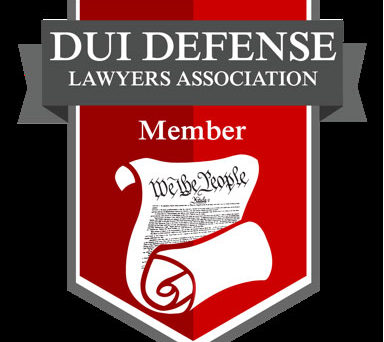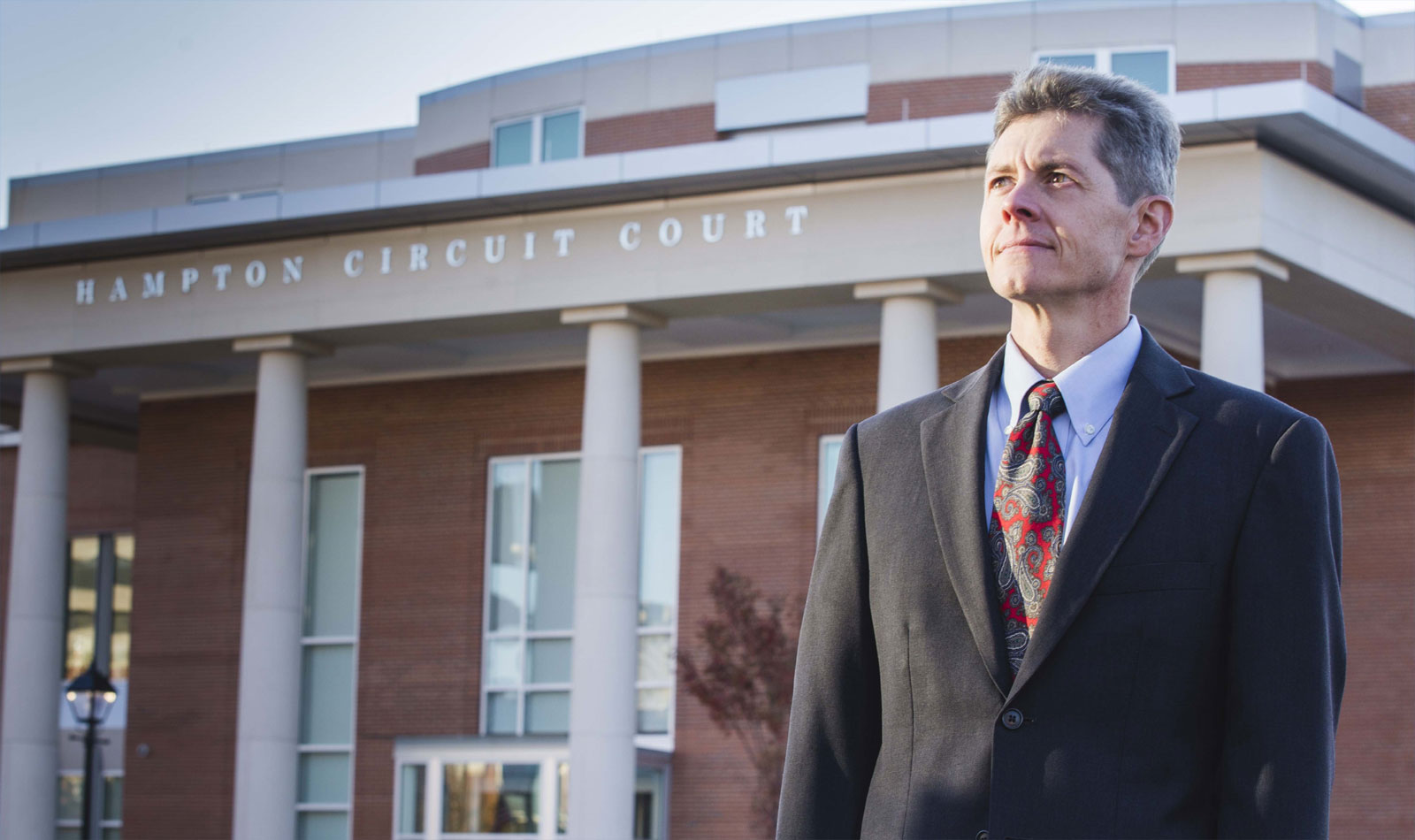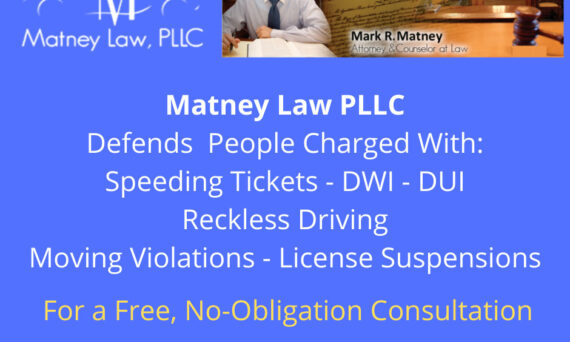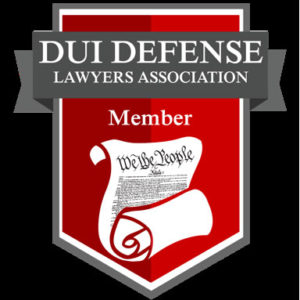The Complete Guide to Expungement
Do I Need To File Expungement?
Posted by Mark Matney of Holcomb Law, PC Newport News, VA
www.matneylawpllc.com
__________________________________
1. If my case was dismissed, why do I need to file for expungement?
The dismissal of a criminal charge leaves a blemish on the defendant’s criminal record. Dismissal does not in itself remove the charge. Anyone conducting a background check would see the charge and any arrest and the notation that the charge was dismissed. Depending on the charge, the mere fact of being charged, regardless of the outcome, may be enough to scare off a potential or current employer. For example, I represented an EMT who had outstanding credentials, even training other EMTs. However, every time he applied for a permanent position he was denied. Potential employers saw dismissed charges related to an ex-girlfriend and chose the candidates without the blemished records.
2. Grounds for Filing the Petition.
a. Terms. The result of the charge must be acquitted, nolle prosequi, or otherwise dismissed.
1) Acquittal is a dismissal based on innocence or lack of proof. This includes a not guilty result.
2) Nolle prosequi is a dismissal by the prosecutor. In this situation, the prosecutor chose not to proceed on the charge. Sometimes a nolle prosequi is triggered by a lack of evidence or difficulty getting a witness to court. At other times, a nolle prosequi may be result of an agreement for one charge to proceed while another charge is dismissed.
3) Otherwise dismissed. A petition based on an “otherwise dismissed” result is the most likely to be litigated.
b. Not eligible for expungement.
1) Amendment to a lesser included offense. For example, if the charge is amended from the felony of Grand Larceny to misdemeanor of Petit Larceny, then the charge would not qualify for expungement. This is so because the elements of each offense are the same.
The Virginia Supreme Court described this situation by stating, “the misdemeanors of which Necaise was convicted were lesser included offenses of the felonies with which he was charged, all of the elements of the offenses of which he was convicted were subsumed within the felony charges and they form[ed] the sole bases for the convictions.” Id. at 669, 708 S.E.2d at 866. Therefore, we held that “Necaise, having been found guilty of offenses charged within the warrants upon which he was arrested, was not an ‘innocent citizen’ entitled to the benefit of the expungement statutes.” Id. at 670, 708 S.E.2d at 866. Dressner v. Commonwealth, 285 Va. 1, 6, 736 S.E.2d 735, 737 (2013), explaining its decision in Necaise v. Commonwealth, 281 Va. 666 [708 S.E.2d 864] (2011).
2) Dismissal after completion of a first offender program. First offender programs result in dismissals and permit people to avoid convictions, but are not eligible for expungement.
3) Evidence sufficient for a finding of guilt. If the judge indicates that there was enough evidence for the person to be found guilty but dismisses the case, then the defendant receives the benefit of not being found guilty but not the benefit of expungement.
c. Eligible for expungement.
1) Amendment of the charge to a separate offense that is not a lesser-included offense of the original charge.
For example, a marijuana possession charge being amended to the unrelated charge of reckless driving.
“The possession of marijuana charge in the instant case, however, was amended to the completely separate and unrelated charge of reckless driving in violation of Code § 46.2–852. Reckless driving is not a lesser-included offense of possession of marijuana. Compare Code § 46.2–852, with Code § 18.2–250.1. In other words, ‘the elements of the offense [ ] of which [Dressner] was convicted’ were not ‘subsumed within the [possession of marijuana charge]’ and did not ‘form the sole bas[i]s for the conviction[ ].’ Necaise, 281 Va. at 669, 708 S.E.2d at 866. Thus, the possession of marijuana charge was necessarily ‘otherwise dismissed’ within the intendment of Code § 19.2–392.2(A)(2).” Dressner v. Commonwealth, 285 Va. 1, 6, 736 S.E.2d 735, 737 (2013).
2) Plea of not guilty or no plea with no finding of sufficiency of the evidence. The Virginia Supreme Court has determined that a petitioner is eligible for expungement where a charge is dismissed without a guilty or no contest plea and without a finding of sufficiency of the evidence.
For example, where the petitioners did not enter pleas and performed certain requirements set by the judge before dismissals were entered, the Virginia Supreme Court “liken[ed] the dismissals ... to a nolle prosequi or accord and satisfaction; each dismissal took place without a determination of guilt, without a finding of evidence sufficient to establish guilt, and without penalties or [285 Va. 7] conditions imposed by judicial authority.” The petitioners occupied the status of innocent and were persons whose charges had been ‘otherwise dismissed’ under the expungement statute. Dressner v. Commonwealth, 285 Va. 1, 6-7, 736 S.E.2d 735, 737 (2013) explaining the decision in Brown v. Commonwealth, 278 Va. 92, 677 S.E.2d 220 (2009).
d. Absolute Pardon and Wrong Person Convicted. There are also provisions for expungement based on an absolute pardon from the governor for a crime that the petitioner did not commit [19.2-392.2(G)] and for a dismissal in which the court found person arrested or charged was not the person named in the charging document [19.2-392.2(H)].
3. Manifest Injustice Requirement. To be successful, the petitioner must also show “that the continued existence and possible dissemination of information relating to the arrest of the petitioner caused or may cause circumstances which constitute a manifest injustice to the petitioner.”
4. Procedure. Strict compliance with the procedures is required. Any imperfection in the petition or the process can result in dismissal of the petition.
a. File the petition in the Circuit Court of the city or county where the charge was brought and dismissed. The petition must include specified information about the charge: date of arrest, name of arresting agency, the charge to be expunged, date of the final disposition, petitioner’s date of birth, petitioner’s full name at the time of the arrest. A copy of the charging document must be filed with the petition or the petition must explain why a copy is not reasonably available. [19.2—392.2(C)].
b. Serve a copy of the Petition on the Commonwealth’s Attorney for the jurisdiction where the petition is filed. [19.2-392(D)].
c. After filing the petition, the petitioner must take a copy of the petition to a law-enforcement agency and have that agency take fingerprints. The agency must submit the fingerprints and the copy of the petition to the Central Criminal Records Exchange (CCRE). The CCRE must then provide the Circuit Court with the petitioner’s criminal history, copies of the source documents that resulted in the CCRE entry, and the petitioner’s fingerprints. The fingerprints are provided to the petitioner after a hearing. The court may also destroy the fingerprints if an order is entered without a hearing. [19.2-392(E)].
d. If the expungement petition is granted, then the court will refund the filing fee to the petitioner. However, the cost of serving the petition on the Commonwealth’s Attorney is not refunded.
5. Is a hearing required? The court may enter the expungement order without a hearing if the Commonwealth’s Attorney provides written notice that he or she does not object to the petition. For a felony, the Commonwealth’s Attorney must also agree that “the continued existence and possible dissemination” of the charge “causes or may cause …a manifest injustice to the petitioner.” [19.2-392.2(F)].
6. Result. Upon entry of the expungement order, the court will promptly remove the record from the court’s website. The Virginia Department of State Police will issue a letter a few months after the entry of the expungement order that confirms removal of the petitioner’s charge from their records.








